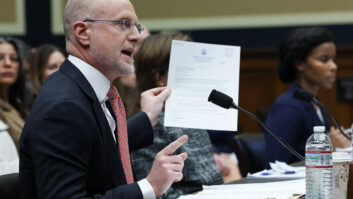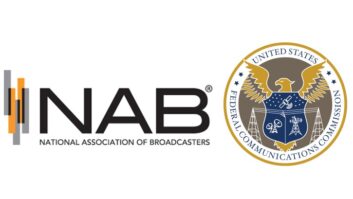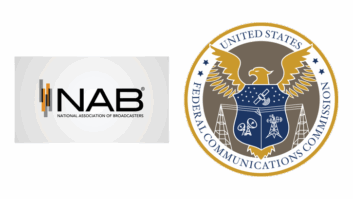The text has been updated to reflect that WCCT is no longer carrying WBUR programming.
Broadcast station managers tend to watch one another’s FCC filings and re-filings, both to monitor their markets as well as to watch for opportunities for themselves. Here’s a case that sheds light on part of that process.
A new FCC staff ruling is a win for the WGBH Educational Foundation but a loss for a local high school station — as well as the WBUR(FM) footprint of which it was part. The chief of the Media Bureau’s Audio Division took the opportunity to address certain questions involving spectrum “warehousing” and what happens when a station re-files an application.
The background:
WGBH Educational Foundation is licensee of noncom educational WCAI(FM) in Woods Hole, Mass. That signal had been licensed for 1.3 kW ERP and vertical polarization; WGBH sought a construction permit to increase WCAI power to 12.5 kW and change its antenna design to widen its footprint, a minor change request that the FCC granted in early 2010. But the job could not be completed by deadline in August 2013 even though hardware had been obtained; so the foundation then asked the FCC to cancel its original and accept a new application with essentially identical facilities. The second application was accepted for filing on Aug. 14 of that year; 30 days later the FCC granted it.
However on the same day of the FCC grant, WCCT filed an informal objection, and later sent a petition to reconsider. That station is a first-adjacent that is licensed to Cape Cod Regional Tech High School in nearby Harwich, Mass., and had carried programming from WBUR(FM), the Boston University public radio station under an LMA (which has since ended).
It argued that the FCC’s action had “prevented WCCT from evaluating this opportunity for expansion [upgrading to a Class B1 station] for another three years,” according to a commission summary. WCCT said WGBH essentially had received a combined six-year construction permit, allowing it to “warehouse spectrum in a competitive environment” and resulting in a loss of coverage to WCCT of some 15,000 people. WCCT said WGBH was trying to “do what the commission has expressly stated licensees cannot, namely extend the deadline of a construction permit beyond the uniform three-year period,” and that any impediments to construction had not met the requirements for such consideration by the FCC.
WGBH replied that WCCT had failed to explain why it could not have spoken up about all this before the application was granted. It also said it was not warehousing spectrum and that it had made “substantial investments and concrete steps” to complete the WCAI project.
Audio Division Chief Peter Doyle wrote that the case brought up both procedural and substantive issues. Procedurally, he said, the high school station did not have “standing” to file because it had had ample opportunity to object to the application prior to the grant. But he continued: “However, we will not dismiss the petition, because we believe that the public interest would be best served by exercising our discretion to address WCCT’s claims.”
He said bureau policy is to accept competing applications on the first business day after the date on which a CP expires. He said the FCC’s “first-come, first-served” processing system creates a window, though a brief one, in which competing applications may be filed after a CP has expired, even if the original permittee has filed a replacement minor mod application.
This policy is supposed to deter spectrum “warehousing” and preserve the rights of potentially competing applicants, as set out in a 1945 legal case called Ashbacker Radio Corp. vs. FCC and a related case, 2001’s Bachow vs. FCC. The policy applies regardless of any measures the first station may have taken in construction.
“In practice,” Doyle explained, “this opportunity would be materially circumscribed if we allowed the existing permittee to preclude the filing of competing applications merely by surrendering its construction permit prior to expiration — without notice — and then immediately filing a replacement application. Moreover, applicants subject to cut-off procedures (such as the first-come, first-served procedure in effect here) must be given notice of the due dates for their applications.
“Therefore,” he continued, “in order to provide notice and afford potential applicants a meaningful opportunity to file competing applications, we treat any application filed on the first business day after the date on which a competing construction permit expires as mutually exclusive with an earlier-filed ‘replacement’ modification application. In such cases, we expect the applicants to use engineering solutions and good faith negotiation to resolve their mutual exclusivity.”
However, Doyle said that in this case, WCCT did not file a competing application when the CP expired; and without such an application, it can’t object to WGBH’s application on the grounds that it prevented WCCT from filing a competing modification application.
“Our policy does not create a blanket prohibition on permittees re-filing applications; it merely provides an opportunity for others to file competing applications,” Doyle concluded. “We will not dismiss or deny WGBH’s application just to allow WCCT to further contemplate its ‘opportunity for expansion.’ More concrete action is needed to activate the protections afforded by Ashbacker and Bachow.”
You can read the ruling here (PDF).







